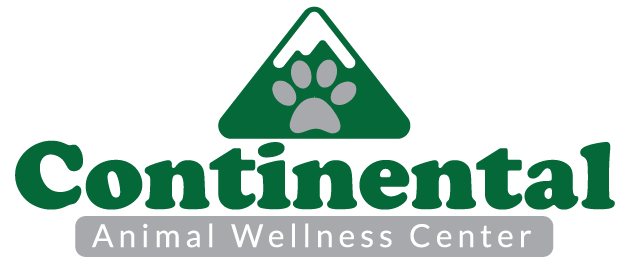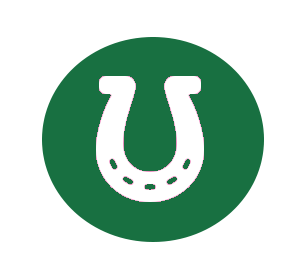Preventative Health Care for Horses in Flagstaff
Routine Equine Wellness Check
Keep your horse feeling its best by preventing health issues before they arise.
Is this an emergency?
Call us at (928) 522-6008 or click to learn more about our emergency services.
Good equine husbandry is based on quality preventative veterinary care. One way to help your horse live a long and healthy life is to focus on problem prevention, instead of problem treatment. This means embracing all aspects of horse care that affect well-being.
Preventative healthcare for your horse does not have to be expensive, but it should be comprehensive. Well-rounded annual veterinary care for your horse includes dental care, vaccinations, and parasite control.
Routine Health Care for Horses
Some of the top ways to keep your animal fit and thriving include the following:Quality Feed
Horses need roughage (hay or pasture) to maintain positive health. In Flagstaff, pasture feeding is hard to come by, so you will want to ensure you have high-quality hay. Resist the urge to purchase low-grade feed or cheap hay. There are all sorts of supplements that you can add, so if you have further questions, please reach out to your veterinarian as it could largely depend on the overall health of your horse. Horses are naturally grazing animals and have historically had free access to grazing all day long. This type of eating habit is best suited for their digestive tracts, as well as for the maintenance of their teeth. Feeding your horse hay roughage two to three times daily mimics these normal feeding habits, especially when given enough to allow for all-day grazing. You will just want to ensure you monitor your horses’ weight to make sure they are not gaining too much. Preventative health care starts with the food you feed them.
Exercise Daily/Environmental Management
Horses are built to move all day, taking steps as they graze. When kept in stalls, they must have a daily exercise for consistent health. This also keeps your horse at optimum weight, which puts less stress on its legs and joints. You will also want to ensure that your horse has adequate protection from the elements. Here in Flagstaff, we see all sorts of different weather patterns, so you will want to make sure your horse is adequately protected from the elements. Finally, horses are social creatures and enjoy being in a herd. If you are unable to have multiple horses housed together, then you are considered their herd mate/leader. Make sure you spend adequate time with your horse, reinforcing the bond and giving them the joy of having a partnership with you. Many horses also enjoy the companionship of other animals such as goats and donkeys to provide the ability to be a part of a herd.
Hoof Care
Every equine veterinarian will tell you that horses require routine foot care. Since horses stay standing for the majority of their day, you are obligated to keep their hooves and legs in good condition. Inappropriate hoof care can lead to severe health issues, including suspensory strain and laminitis. Most farriers will see a horse for routine trimmings and shoeing every 6-8 weeks.
Routine care also includes:
- Annual veterinary exam with vaccinations
- Floats
- Fecal testing
Horse Vaccines
Equine vaccination is vital to maintaining ongoing health and is a key component of preventative care. Vaccinations stimulate the immune system against infection before exposure to the disease occurs.
Horse vaccines are routinely given as a core defense against serious infectious diseases. Horses should be vaccinated against the following:
- Tetanus
- Rabies
- Eastern and Western Equine Encephalomyelitis
- West Nile Virus
- +/- Influenza/rhinopneumonitis
Horses that are involved in shows or other events where a large group of horses is housed in close proximity should also be vaccinated for equine herpesvirus 1 and 4 (EHV-1 and EHV-4). Booster shots may be needed every three to six months for effective immunity.
A veterinarian might recommend additional vaccinations specific to your horse’s circumstances and the area of the country. This will depend on several factors like the age of the animal and exposure to other horses.
Foals born to a vaccinated mare are typically protected for up to six months. That is because the foal consumed the antibody-rich milk known as colostrum within six hours of birth. In this case, any vaccination would be ineffective.
Poor quality vaccinations increase the risk of your horse having an adverse reaction. This can range from general inflammation at the site of injection, to malaise, and more serious responses that affect the entire body, like anaphylaxis. Make sure you are communicating with your veterinarian if you are seeing anything alarming you after your horse receives vaccinations.
Dental Care for Horses
A horse’s mouth contains two types of teeth: the incisors (cutting teeth) in front and the molars (grinding teeth) in the back. Both are important for normal food intake and digestion.
Throughout life, equine teeth grow and wear down. Unfortunately, this can happen unevenly, leading to edges, hooks, and sharp points that need to be trimmed or ‘floated.’ This is what makes dental care for horses an essential part of horse health.
Common signs your horse is having dental issues include:
- Reluctance to chew, eat, or take a bit
- Dropping feed
- Sores or swelling in the mouth
- Foul-smelling breath from decay or gum disease
- Pain or swelling around the jawline or throat
- Drooling saliva /discharge from the mouth or nose
- Loss of body condition
Proper dental horse care means a yearly checkup with a veterinarian. They will look at the inside of the mouth for teeth with sharp points or edges, and grind them down with a specially designed dental drill. As with hoof trimming, this type of procedure is best left to the professionals.
Young horses require more frequent inspections to ensure the adult teeth come into wear correctly. Equine veterinarians also want to confirm that milk teeth, ‘caps’ have been shed successfully. Older horses require a higher frequency of dental inspections as they are more prone to problems like decay, impacted food, and loose teeth.
Horse dental care is necessary to maintain healthy teeth and gums, promote good chewing, ensure thorough digestion, and acceptance of bit and rein contact.
Horse Parasite Control
Horses are grass-grazing animals and thus, are more prone to ingest parasite eggs found throughout the environment. The parasite burden for any individual horse depends on its age, exposure to other horses, and the size and quality of the pasture. Equine parasite control is important to sustain a healthy and long-lasting life for your horse.
Internal Parasites
The majority of intestinal parasites are ingested while the horse is grazing. The main intestinal parasites of horses are:
- Tapeworms
- Roundworms
- Pinworms
- Stomach bots
- Strongyles (also called redworms or bloodworms)
Worms will interfere with the absorption of essential nutrients your horse needs. These internal parasites will cause damage to the digestive tract including gastrointestinal upset, diarrhea, and even colic.
Most horse parasite control programs are designed around strongyles, where young horses typically have a higher rate of infestation than older ones.
Fortunately in Flagstaff, we do not see parasitic infestations as often as in other parts of the country. That, in conjunction with the widespread development of antibiotic resistance in these internal parasites, we recommend that a fecal sample is sent to the lab for examination once yearly before any deworming. This will help us decide if deworming your horse is necessary.
Good grooming habits and a clean pasture also play a huge part in parasite control for your horse. If concerned, you can periodically submit fecal samples to your vet to check for any type and number of internal parasites.
External Parasites
As outdoor animals, horses are also bothered by external parasites, like flies, fleas, ticks, and mites. These insects can cause sores and subsequent infections on the face, neck, head, abdomen, and legs. Irritation can create general upset, nervousness, failure to thrive, and decreased appetite. One example is ‘fly worry.’
Horses should be checked regularly for damage from external parasites. Fly control involves proper stall cleanliness and manure management. A variety of insecticidal lotions, salves, sprays, and rubs are also available to decrease irritation.
If you have questions or concerns, consult your veterinarian about an appropriate parasite control program for your region and circumstances.
Contact Continental Animal Wellness Center Today With Questions!
Full-time horse care is a big responsibility, but it does not need to be complicated. A solid program starts at birth with the proper vaccinations, quality food, and a clean pasture. This keeps your horse free of disease and enables them to live a happier and longer life.
Thwarting a problem always makes more sense than treating one. A major part of preventative care means keeping to a consistent routine. This includes regular checkups for their teeth, hooves, skin, and general health. If a sharp tooth needs to be filed or a hoof is chipped, you should always be the first to know.
Horses are a domesticated breed that largely depends on their human caretakers for contentment and longevity. Preventative care is not much work when you love your animal, and it takes a lot less time than solving an issue once it has surfaced.
If you run into anything abnormal or alarming during routine care, contact your veterinarian immediately. They can always help you make the best of your horse’s health care program.
Contact us to schedule your pets appointment today!
Large animal exams can be done in the familiar surroundings of your barn; we also offer in-home euthanasia for the comfort of you and your pet.

